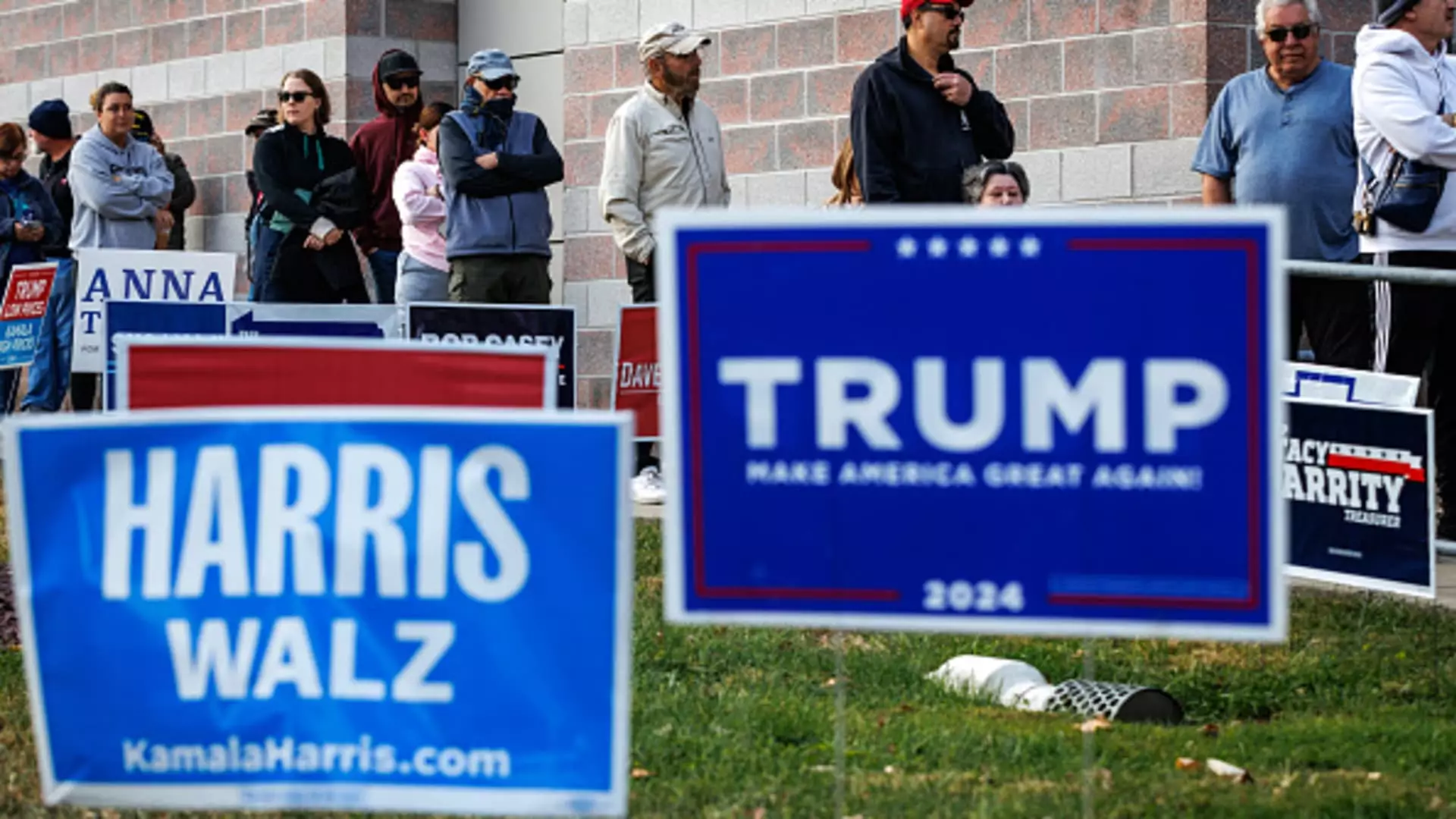Recent polling data from the AARP has illuminated a crucial aspect of the electoral landscape that cannot be overlooked: the sentiments of older voters, specifically those aged 50 and over, regarding their economic circumstances and political preferences. The poll reveals a stark reality for this demographic, with a notable 47% asserting that they are worse off today than they were four years ago. This sentiment is particularly strong among swing voters in this age group, where the percentage rises to 55%. The implications of these findings are profound, as they not only highlight economic insecurity but also indicate shifting political allegiances that could influence future elections.
As older voters represent a substantial portion of the electorate, their opinions can significantly sway electoral outcomes. In competitive congressional districts, Republican candidates like President-elect Donald Trump managed to secure slightly more votes from this age group, reflecting a complex relationship between economic concerns and party loyalty. The results suggest that while older voters may have a favorable view of certain Republican policies, their declining financial satisfaction raises critical questions about the future of party dynamics and voter allegiance.
A deeper examination of the AARP’s findings reveals that economic issues underpinned the electoral decisions of older voters. In previous surveys, a striking 62% of voters aged 50 and above expressed concerns about their personal financial situations, which echoes a broader anxiety felt by 63% of voters overall. This pervasive worry regarding financial stability cannot be dismissed; it reflects the economic strains that have become a significant electoral focus, particularly during times of inflation and heightened living costs.
Among the concerns identified, food costs emerged as the paramount issue for this demographic, with 39% citing it as their primary financial worry. In addition, health care and prescription drug expenses, housing, gasoline, and electricity also ranked high on the list, corroborating a trend where older voters prioritize personal economic issues over political rhetoric. The undeniable influence of pocketbook concerns is further illustrated by the fact that swing voters were more motivated to participate in elections due to these financial anxieties.
Despite Republican candidates winning over older voters on many economic issues, the AARP survey revealed a significant shift in attitudes toward key topics like Social Security. Historically, Democrats have enjoyed a stronghold on Social Security issues, but the current sentiment indicates that this support is “up for grabs.” With older voters expressing a nuanced preference in their attitudes towards Social Security, both parties will need to recalibrate their messaging to resonate with the needs of this population.
The midterm elections will undoubtedly be shaped by these evolving sentiments, prompting both Republicans and Democrats to strategically address the economic themes that resonate most with older voters. Issues like Medicare, prescription drug pricing, and policies to facilitate aging in place have become focal points that older voters expect their representatives to prioritize.
Amidst the concerns around economic performance, the looming challenges facing Social Security and Medicare cannot be ignored. With predictions indicating that the Social Security trust fund could run dry by 2033, the urgency for Congress to act is evident. Advocates for the program, like Social Security Works, emphasize the necessity of proactive measures to safeguard benefits for current and future beneficiaries.
Political promises to protect Social Security resonate with voters, yet there remains a glaring absence of plans to restore the program’s long-term solvency. Proposals to eliminate taxes on Social Security benefits have raised eyebrows, as experts warn that such measures could exacerbate the existing insolvency crisis. As older voters increasingly recognize the precarious state of these programs, they are likely to demand definitive commitments from candidates regarding fiscal responsibility.
As we navigate the complexities of aging voter demographics, it is paramount that both parties heed the concerns raised by older constituents. The findings from the AARP poll reveal a demographic at a crossroads, grappling with economic insecurity while simultaneously navigating their political affiliations. With critical issues like Social Security and Medicare looming, effective solutions must be developed to address these widespread concerns.
For political leaders, the task at hand is clear: prioritize economic policies that restore confidence and security for older voters. Affluent programs must be crafted thoughtfully to protect the interests of this essential voter base, ensuring that their financial worries are addressed while maintaining the integrity of vital social services. By doing so, they can cultivate loyalty among older voters and pave the way for a more stable political future.

Leave a Reply